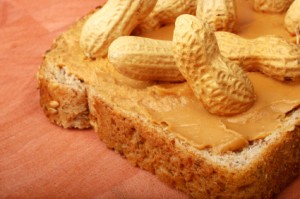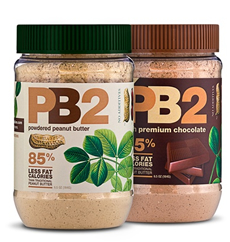 Who didn’t grow up eating peanut butter sandwiches? While peanut butter and jelly has been a lunchbox staple for as far back as anyone can remember, the delicious sandwich spread is far from diet-friendly.
Who didn’t grow up eating peanut butter sandwiches? While peanut butter and jelly has been a lunchbox staple for as far back as anyone can remember, the delicious sandwich spread is far from diet-friendly.
“Peanut butter in its basic or pure form is a healthy source of protein,” said Oliver Gerard Heffern, owner of glor foods. “It’s what’s added there after that can cause concern: sugars, preservatives, additives and colors.”
According Brandon May, author of The Healthy Advocate, peanut butter label claims can be be misleading. “No matter which brand, any peanut butter labeled ‘reduced fat or ‘low-fat’ should be avoided,” May said. “They typically have fillers that increase the sugar content, making them potentially more harmful to your health than a higher fat version.”
Additionally, most commercial peanut butters have oils that have been fully or partially hydrogenated, which creates trans-fat. “It isn’t peanut fat that’s a problem, it is the trans-fats in the peanut butters that contributes to poor health,” said May. “Any peanut butter labeled ‘natural’ or ‘organic’ will not have hydrogenated oils, but you should always check the label to see the sugar content.”
While some brands boast a healthy serving of protein, many varieties of peanut butter are loaded with sugar, high-fructose corn syrup and other artificial ingredients and flavorings. If you’re on a diet but refuse to part with your daily PB&J, make an informed decision when it comes to your next peanut butter purchase.
To make life easier, we tracked down some of the healthier peanut butter options out there – just remember to be mindful of your portion size. Peanut butter is calorie-dense and only two tablespoons can have up to 200 calories.
For Organic Shoppers on a Budget
If you’re watching your wallet, Nature’s Promise is one of the most nutritious options you’ll find on your grocery store shelves. With 200 calories per serving, the only ingredients are organic peanuts, so you’ll get your protein and flavor with no added sugars, corn syrup or preservatives.
 For a Dedicated Calorie-Counter:
For a Dedicated Calorie-Counter:
If you’re watching your calorie intake but miss the flavor of peanut butter, PB 2 is a powdered peanut butter substitute that you mix with water to achieve desired consistency. While on the pricier side, a little will go a long way.
For a Sophisticated Palate:
Peanut Butter & Co., originally a New York-based sandwich shop, offers a line of all-natural peanut butter containing no hydrogenated oils, no cholesterol, no trans-fats and no high fructose corn syrup. All ten flavors are gluten-free and with the exception of one flavor, vegan. While they might not be low-calorie, they’re wholesome and tasty, made only from domestic peanuts.
For a Natural Foodie:
If you like to know exactly what kinds of ingredients go into your food, grinding your own peanut butter is easy, inexpensive and will result in a wholesome final product. “I buy roasted, salt-free peanuts and then process smaller amounts in my Vita Mix blender,” said Julie Wheaton, San Diego-based writer and editor. “Labeling claims can be so confusing, so I always stick with organic peanuts.”
Also Read:
